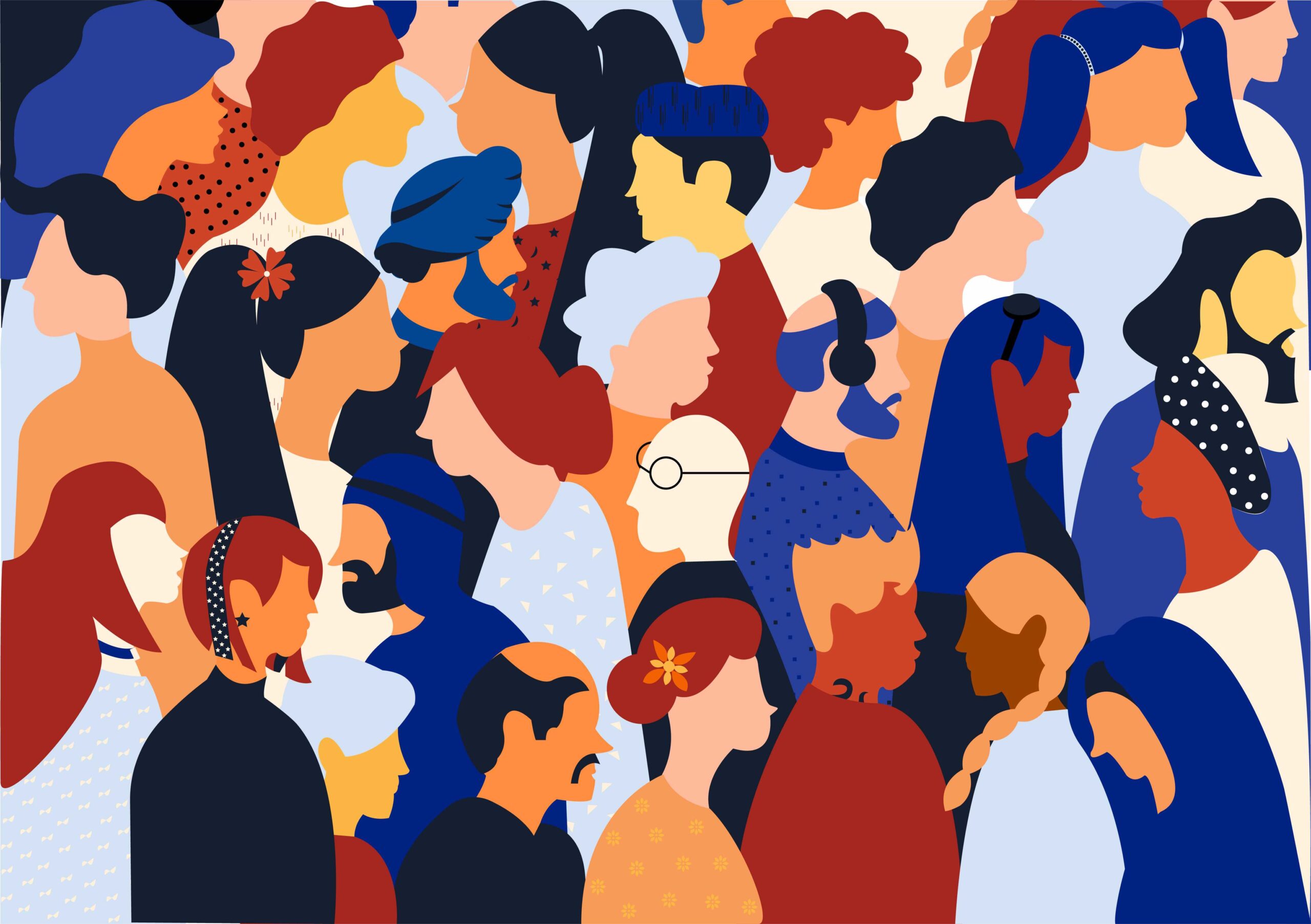What does the “ideal” workplace of the future look like? Although their vocabulary may differ, experts generally agree that thriving organizational cultures prioritize the wellbeing of their workforce, and in doing so yield better performance and financial outcomes. For instance, in its 2022 State of the Workforce Report Gallup surveyed more than 100,000 business units in 96 countries and found a strong link between employee engagement and performance outcomes including retention, productivity, safety and profitability.
Our lives inside and outside the workplace are inextricably linked. We carry our work experiences with us into our personal lives. In fact, long-term health and wellness correlates to how satisfied or stressed we are at work. For example, employees who experience high levels of burnout at work are 23 percent more likely to visit the emergency room. The opposite is equally true: We carry the impact of external forces and events of the world around us into the workplace, regardless of our industry, position or level of responsibility.
Cultural and ideological polarization has been on the rise, not only in the U.S. but around the globe. Political scientists have identified a rise in what they call “pernicious polarization,” which they define as “the division of society into two mutually antagonistic political camps.”
In essence, we are increasingly becoming entrenched in “us versus them” camps which impact our family gatherings and friendships. Our decreasing ability to connect across our differences erodes democracy, impacting economic and societal stability. On a more micro level, it damages our work cultures and ultimately our organizations’ bottom lines.
We are neurologically predisposed to engage in “us/them” thinking. Our brains instinctively react based on whether we interpret a situation as safe or a threat. In our everyday lives, a perceived threat could be any experience that makes us feel discomfort, instability, unfamiliarity or exclusion. Something as simple as learning a colleague does not share our political views can cause our opinion of them to drop dramatically. In these moments we contract – we become more inclined to engage in antisocial behaviors. We draw back, disconnect, and literally may physically distance ourselves from that person. We may begin to judge not only their opinion but their very character – labeling them ignorant, unintelligent, or even immoral and dangerous.
Contracting makes it almost impossible for us to engage in attitudes and behaviors that foster a thriving culture. In judgment mode we are less able to be curious, empathize, or invite and listen to divergent perspectives. We double down on our preconceived notions and discount any data or insights that might challenge our beliefs. When we are in the “us/them” mindset, we are more prone to overestimate the differences between ourselves and those we perceive as “other” and underestimate the differences between ourselves and those we see as “us.”
On the other hand, “safe” situations make us feel comfortable, secure and understood. We simultaneously feel a sense of belonging and feel appreciated for what makes us unique, which is a fundamental human desire. In these situations, we expand – we are more likely to engage in pro-social behaviors by practicing curiosity, empathizing, offering help and collaborating on solutions.
Contracting into our “us” camp is our hard-wired default in moments of polarization. The challenge for talent managers—and each of us, really—is making ourselves vulnerable by exploring the perspectives and lived experiences of those we see as the “other.” This concept, known as expansion, forces us to challenge our own identity group’s beliefs as we develop a more nuanced understanding of a person, a group or an issue.
Expansion is crucial for fostering thriving organizational cultures, particularly when it comes to leveraging the talents and meeting the needs of an increasingly diverse workforce and consumer population. Talent management professionals have a significant role to play in this effort, because they can connect with individuals across the organization at various levels and stages of their career development. They can help mitigate the effects of pernicious polarization by equipping employees with skills for expansion.
This is not a one-and-done solution. Expansive practices should become embedded in the fabric of organizational life. There are three fundamental practices that can help embed expansion into the organizational culture.
Acknowledge multiple realities
We all view the world through our individual identity lenses based on our values, biases and experiences. Those filters create our interpretation of any given situation, which then becomes our “truth,” and our truth then solidifies in our minds as the only truth. The more concerned we are about a perspective because of its impact on us or our identity group, the more strongly we are likely to react to opposing viewpoints.
Considerations for acknowledging multiple realities:
- Ask for clarification. Help me understand what that means to you.
- Seek out the other person’s “why.” What makes this important for you?
- Identify what perspectives are missing when surrounded by your “us” group. Whose voices are not present that we may need to consider?
Quiet the “internal judge”
In moments of contraction, the voice of our inner judge likes to come out and offer multiple arguments to prove others wrong. Our brain will go to great lengths to seek out only data that confirms our existing beliefs and will ignore, discount or discredit any information that challenges those beliefs. The more we dig into our arguments and try to prove others wrong, the more likely people on the other side will do the same, which means none of us is listening to the other.
This does not mean we concede our deeply held values or beliefs. It means listening to the other side’s story and understanding why they believe and behave as they do. In doing so, we might find common ground that we didn’t expect. We might expose ourselves to the flaws or blind spots in our own beliefs. And even if we might not change our beliefs or find value in opposing arguments, by listening to others’ stories we open them up to reciprocate.
Practices for quieting the internal judge:
- Reflect on what the other has shared to check understanding. What I’m hearing you say is….and why it matters to you is….
- Acknowledge the emotion. I see this is really [important/frustrating/exciting] to you.
- Identify where there is common ground. Here’s where I agree with you…
Broaden your social network
In her book, I Never Thought of It That Way: How to Have Fearlessly Courageous Conversations in Dangerously Divided Times, Mónica Guzmán offers a simple yet profound insight: “When you’re surrounded by people who reflect the same basic set of perspectives, you’ll find it harder to grasp any others.”
Expansion does not mean you should lose touch with people in your identity group or put yourself in situations that may cause you psychological or physical harm. It also does not mean excusing harmful or discriminatory ideologies or behaviors. If a person or group presents beliefs that perpetuate the marginalization, oppression or hate of an identity group, especially one that has been historically targeted, we should firmly denounce those ideologies.
However, research indicates that one simple way we can mitigate the effect of our implicit biases is to expose ourselves to people who are not part of our identity group. Expand your social network by assessing who is in your personal and professional inner circle and what identity dimensions they represent. Look for the gaps and consider ways to close those gaps.
Questions for broadening your social network:
- Who do I spend the most time with?
- Who do I go to for advice or help?
- What information/news sources do I trust most?
- Whose experiences and perspectives are most often represented in my decision making?
By infusing these practices into our daily lives, we have the power to build stronger interpersonal connections, make more inclusive decisions and ultimately foster organizational cultures that promote wellbeing.












